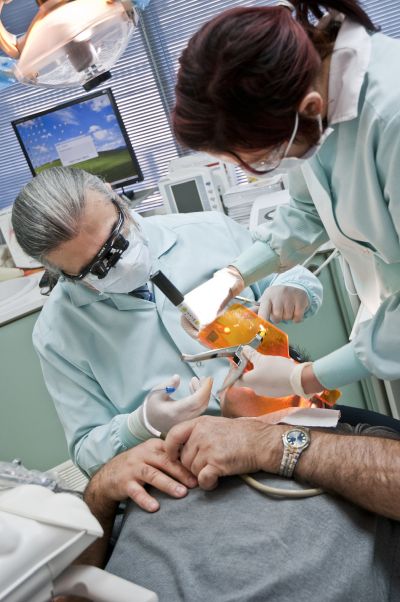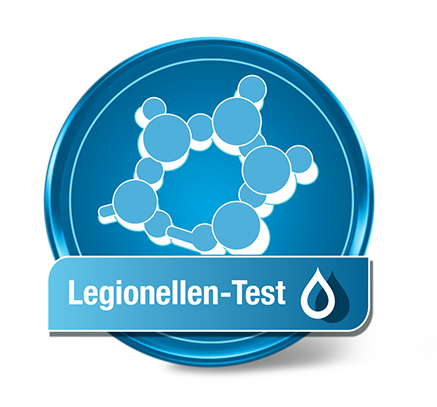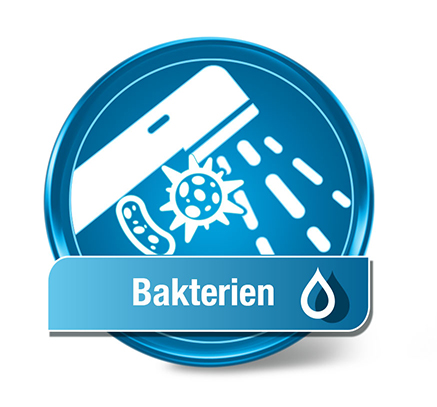Dental Water – Is It Safe?

During dental treatments, a lot of water is typically used. This is necessary to keep the teeth and gums clean and to perform the procedure. However, some people are concerned about whether the water used at the dentist is hygienic.
First of all, you should know that the water used by dentists is usually cleaner than the tap water at home. The water used in dental chairs is regularly treated and purified to prevent the growth of bacteria.
Still, there remains a slight risk that pathogens could be transmitted. This is usually only a concern for very sensitive individuals. Normally, the pathogens are not strong enough to cause harm. If you're worried, you can simply wear a mouthguard. This will protect you from contact with water and bacteria.
Alternatively, you could bring your own syringe with sterile water and use it to rinse your mouth. In general, using water at the dentist is safe. Even if there is a minimal risk, it is usually negligible.
Can You Get Infected from Dental Water?
This question is common among people who regularly visit the dentist for cleanings or treatments. The answer is yes, you can get infected from dental water—but the risk is very low.
Dentists frequently use water to rinse and clean patients’ teeth. This water can contain bacteria capable of causing illness. Bacteria may also be present on the dental chair. That’s why it’s important to visit a dentist who uses proper cleaning agents and sterilized instruments.
What Should You Look for in a Dentist?
It is important to pay attention to the quality of the water used at your dentist’s office. Many bacteria can thrive in poor-quality water and may harm your teeth or mouth. Make sure the water you're exposed to at the dentist is clean.
Bacteria at the dentist: Bacteria are everywhere—including at the dentist’s. Naturally, dental practices perform regular hygiene measures to keep germs to a minimum. However, if hygiene is not optimal, bacteria can still multiply and lead to infections.
When receiving water-based treatments at the dentist, bacteria may enter the water and reach your mouth. This can lead to infections, particularly if you have a pre-existing condition that weakens your immune system. It’s therefore essential to inform your dentist of any health conditions. If you're at increased risk of infection, your dentist can take extra precautions to minimize that risk.
Dental chair water: When you're in the dentist’s chair and are asked to open your mouth, water often comes out of the hose. Many people worry that this water may be unhygienic or contain bacteria. But is this really the case?
First, it’s important to understand that the water coming from the hose doesn’t directly contact your teeth or mouth. It’s mainly used to operate the rinsing system, which then removes the water from your mouth. So the hose water is not the same water that remains in your mouth during treatment.
Moreover, before the water ever exits the hose, it’s disinfected with a filter and a UV lamp. This process eliminates any potential germs or bacteria. You can rest assured that the water coming from the hose is fully hygienic.
✔ 12 common pharmaceuticals
✔ e.g., diclofenac, ibuprofen
✔ 20 common PFAS chemicals
✔ Per- and polyfluorinated alkyl substances
✔ Heavy metals and pollutants
✔ For general drinking water, softeners
✔ Most common pesticides
✔ Glyphosate separate analysis
✔ E. coli, coliform bacteria
✔ Enterococci
✔ Risk of transmission during showering
✔ Causes Legionnaires' disease
✔ Focus on bacterial contamination
✔ For general drinking water, softeners
✔ Heavy metals and contaminants
✔ Separate bacteria test recommended








